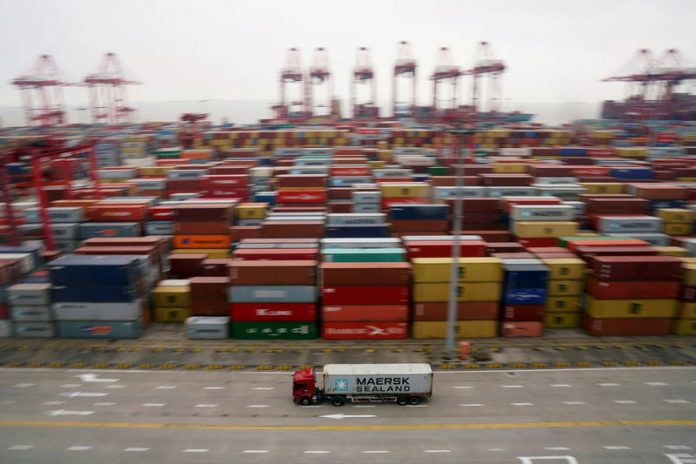SINTRA: A developing trade war between the world’s biggest economies is weighing on business confidence and could force central banks to downgrade their outlook, the world’s most powerful policymakers argued on Wednesday.
After imposing punitive tariffs on a number of its top trading partners, the United States earlier this week threatened China with further duties on $200 billion, escalating a conflict that has already drawn retaliatory steps from nearly all corners of the world.
Sitting side by side in a Portuguese hill-top town, the heads of the US Federal Reserve, the European Central Bank, the Bank of Japan and the Reserve Bank of Australia all took a gloomy view on the escalating conflict, arguing that the consequences are already evident.
“Changes in trade policy could cause us to have to question the outlook,” Fed Chair Jerome Powell said in some of his strongest remarks yet on the issue.
“For the first time we are hearing (from business leaders) about the decision to postpone investment, postpone hiring, postpone making decisions,” he said.
The US could be a victim of its own policies, Deutsche Bank’s analysts argued, predicting a hit to growth and corporate earnings.
“Our analysis indicates that such a further escalation of the trade dispute to include $200bn of imports could reduce real GDP growth by roughly -0.2 to -0.3 percentage points,” Deutsche said, adding that this could reduce S&P 500 earnings growth by 1 to 1.5 percent.
Such a trade war would come at an especially sensitive time for central banks, as they try to move past crisis-era unconventional measures and build policy buffers for any potential downturn at the end of the current business cycle.
Appointed by US President Donald Trump late last year, Powell took charge of the Fed in February, just as the trade dispute with China was beginning to intensify.
While not directly criticising the administration, the comments to a European conference indicate that the Fed is already contemplating how to shape its own policy amid rising global tensions that could curtail an economic expansion now in its 10th year.
“If you ask is it in the forecast yet, is it in the outlook, the answer is no. And you don’t see it in the performance of the economy,” Powell said.
Speaking alongside Powell, ECB chief Mario Draghi said he had little reason to be optimistic, arguing that the ECB would have to incorporate the newest wave of punitive measures into the calculation.
“It’s not easy and it’s not yet time to see what the consequences on monetary policy of all this can be, but there’s no ground to be optimistic on that,” Draghi said.
He warned that the impact could come through reduced confidence, lower investments and a drop in exports, all potentially exacerbated by retaliatory moves.
The ECB last week downgraded its growth forecast for the year, and Draghi said the economy’s soft patch could be longer than the bank’s staff predicted.




